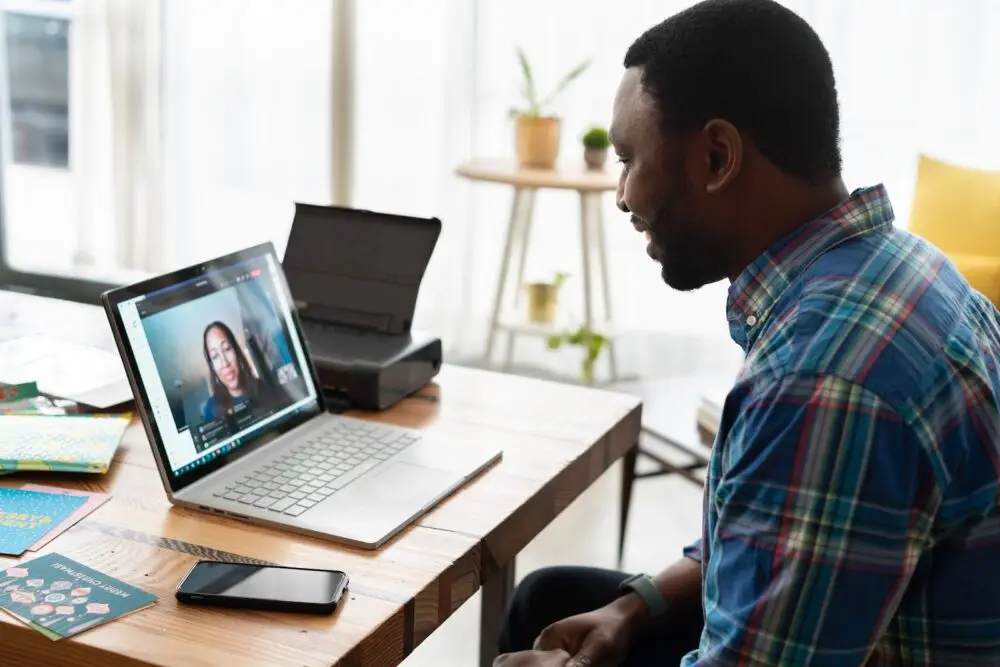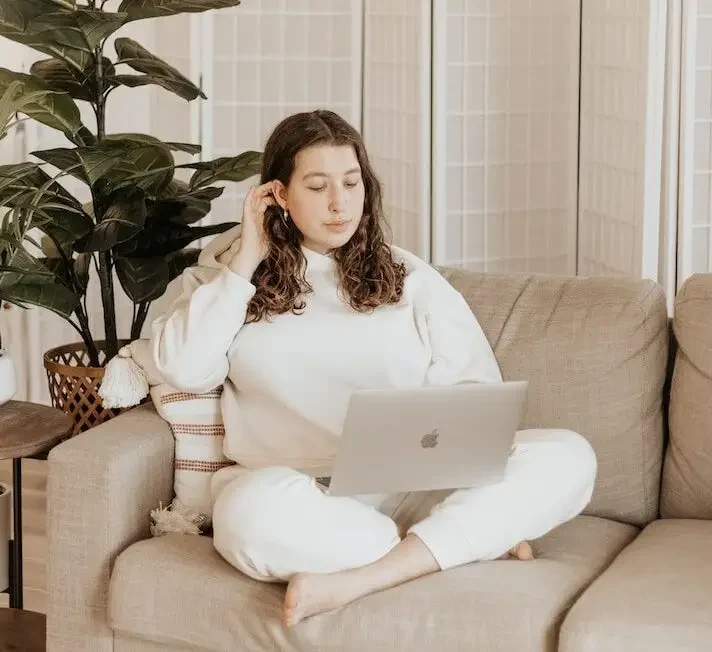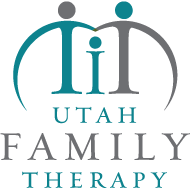Teletherapy for Depression and Anxiety
Teletherapy Works!
Anxiety and depression are common feelings that make it hard to enjoy daily life. Anxiety is when you feel worried or scared when there’s no reason to be. (See Anxiety Symptoms)
Depression is when you feel sad, hopeless, or not interested in things you enjoy. These feelings can make it hard to go to school, be with friends, or do something you like.
Teletherapy can help with anxiety and depression by giving you a safe place to talk about your feelings.
Table of Contents
Scheduling a Teletherapy Session
It’s easy to schedule or join a teletherapy session.
All you need to do is call us at 801-901-0279, and one of our friendly staff members will help you get started.
Once your appointment is scheduled, you will receive an email with instructions on how to join the session with the therapist.
Effective Treatment Option
If you’re suffering from anxiety, pornography, or depression, Teletherapy is just as valuable and effective as traditional in-person therapy sessions while allowing more privacy and flexibility and is an effective treatment option for many people seeking mental health care.
Some studies have found that video conferencing can be just as effective as in-person care in most cases., like the study published in the Journal of Affective Disorders, which found that internet-based CBT treatment for depression was more effective than in-person treatment.
This is likely because Teletherapy provides easier access to treatment and no transportation or time barriers.
Additionally, it gives clinicians a glimpse into the person’s life, allowing them to gain insight into their environment which can be beneficial for providing better care.
Overall, Teletherapy and Online Therapy is an effective way to provide mental health services and is just as effective as traditional in-person therapy.
It offers convenience and cost savings while still providing quality care, making it an excellent option for those unable or unwilling to attend conventional therapy sessions.
With its growing popularity, Teletherapy is becoming increasingly accessible and may soon become the preferred method of mental health care for many people.

What is Online TeleTherapy or Video Therapy?
Mental health teletherapy is a relatively new form of therapy that utilizes digital or telecommunications technology to provide mental health care and has become a powerful tool for millions of people dealing with mental health challenges like anxiety, depression, trauma, and pornography.
Teletherapy is therapy done through technology, using the internet and phone for video and voice calls. You can still interact with your therapist through online therapy platforms such as Google Meet and Zoom without ever needing to sit in the same room.
This means you can get treatment without going to your therapist’s office.
One of the most significant benefits of Online Therapy is that it can be much more convenient than traditional therapy. If you live far away from a therapist’s office, you might drive for a long time to get there.
Or, if you have a busy schedule, it might be hard to find time to go to therapy when needed. With Teletherapy, you can have treatment from the comfort of your own home or even on the go if you have a device with internet access.
Challenges with Teletherapy
Teletherapy has become increasingly popular in recent years, but it has challenges.
Mental illness affects different populations differently, and the digital divide can be a barrier to accessing Teletherapy for those who don’t have access to the necessary tools.
Additionally, there is muddled guidance on providing remote therapy across state lines, and not all therapists are equipped to deal with minor emergencies.
Furthermore, some people find it harder to build rapport with someone virtually, and screen fatigue from being on the computer all day can make it hard to engage during a therapeutic virtual session.
The CDC data shows that mental health conditions disproportionately affect specific populations such as young adults, Hispanics, Black people, essential workers, and unpaid caregivers for adults.
This makes Teletherapy even more critical as an accessible form of treatment for these groups who may not otherwise have access to traditional therapy services.
However, due to the unique challenges associated with Teletherapy, therapists must be aware of potential issues that could prevent you from receiving the best possible care.
Furthermore, some people find it harder to build rapport with someone virtually.
Screen fatigue from being on the computer all day for work or virtual learning can make it hard to engage during a therapeutic virtual session.
This can lead to decreased engagement and effectiveness in teletherapy sessions.

7 Benefits of Teletherapy:
1. More Access: One significant benefit of Teletherapy is that it provides increased access to you even if you live in a rural area.
Teletherapy is also helpful for people who have trouble getting to a therapy office. For example, if you have a disability that makes it hard for you to get around, Teletherapy can be a great option. You don’t have to worry about getting to a therapy office, finding parking, or anything like that. You can have therapy from wherever you are.
And, if you live in an area where there aren’t many therapists, Teletherapy can be a lifesaver. In some rural areas, there might only be one or two therapists for a whole county.
Clinicians can provide services to you due to geographical constraints so you can still get the help you need, no matter how far away the therapist is.
2. Greater Flexibility: Teletherapy allows flexible scheduling rather than being tied down by rigid office hours, which might not suit your lifestyle.
3. Comfort: Teletherapy is also beneficial if you’re uncomfortable with face-to-face therapy or have transportation issues.
4. Reduced Stigma: The anonymity provided by Teletherapy means there is less potential for stigma compared to meeting the therapist in person.
This can be especially helpful for those who feel embarrassed about seeking counseling services or don’t want to discuss specific topics in person, even if they reach out for help.
The hesitation to seek out therapy is understandable, and that’s why providing an environment where you can freely express yourself without judgment, or shame is critical.
5. Individualized Treatment Options: Another advantage of utilizing Teletherapy for your mental health is that it allows therapists to develop an individualized treatment plan tailored to your needs.
Studies show that this personalization significantly improves care outcomes by creating an honest dialogue between you and your therapist about what does and does not work best for you during your treatment sessions, without the added pressure associated with meeting face-to-face.
6. Improved Engagement: Ultimately, one of the most significant advantages of using Teletherapy is improved engagement with your therapist and your conversations, which helps you want to continue to attend therapy and get the help and support you need.
7. Improved Mental Clarity: Studies show that working through mental health issues via a screen may improve mental clarity because you’re not feeling distracted by a therapist sitting in front of you.
Teletherapy is becoming increasingly popular for its convenience, flexibility, comfort, and accessibility. It provides an excellent option for those seeking mental health care and can be just as effective as traditional in-person therapy.
Telebehavioral Health Therapy is Increasing in Popularity
The pandemic has devastated Americans’ mental health, with rates of anxiety and depression skyrocketing.
According to the 2021 Mental Health In America report from the Mental Health America organization, more than half a million people reported signs of anxiety and depression between January 2020 and September 2020.
The Centers for Disease Control and Prevention (CDC) found that anxiety disorder symptoms were three times higher in June 2020 compared to the second half of 2019, 25.5% versus 8.1%, while the prevalence of depressive disorder was four times higher, 24.3% versus 6.9%.
In response to this crisis, online video or phone counseling will reach a broader audience that helps heal and restore society’s social and emotional aspects.

Will Be More Widely Used for Mental Health Treatment
Mental health specialists are optimistic about the potential of Teletherapy for mental health treatment, even with its faults.
According to Dr. Ho, many individuals are likely to change to a combined model of Teletherapy and in-person care once Covid-19 restrictions come off.
This would simplify for working professionals, parents, and anyone needing psychological assistance to access it without dealing with unnecessary inconveniences.
Teletherapy also has the potential to reach more people and diverse communities than traditional forms of therapy due to its flexibility and accessibility.
We believe online therapy is helping us reach our goals to eradicate suicide among teens and adults by providing the mental health services which can save lives.
Additionally, online tools can help build rapport between therapist and client, even if they communicate across a screen. Experts agree that Teletherapy is here to stay and will continue to revolutionize how we approach mental health treatments for years to come.
The primary benefit of Teletherapy is greater accessibility to mental health services for all individuals:
- Busy schedules
- Impaired mobility
- Transportation constraints
- Living in remote locations
Everyone can receive crucial treatments with less effort. Additionally, Teletherapy offers further advantages over conventional counseling services.
Another benefit of Teletherapy is that it can be easier to find a therapist that is a good fit for you.
When you go to a traditional therapy office, you might only be able to see one therapist. But with Teletherapy, you can usually choose from many different therapists, no matter where they are located.
This means you can find someone who specializes in the kind of help you need and to who you feel comfortable talking.

Need a Therapist in American Fork, Utah?
Utah Family Therapy is the perfect place to find a counselor or therapist near American Fork, Utah.
Our team of experienced therapists is dedicated to providing personalized care for you and your loved ones.
We offer in-person and Teletherapy options tailored to meet your mental health needs.
Whether you’re a teenager, adult, couple, or family, our counselors have the expertise and training to help you reach your goals.
At Utah Family Therapy, we understand how important it is to get quality care regarding mental health.
That’s why we only work with experienced professionals who can provide the best possible service for you.
We also strive to make our services convenient and locally reputable so that everyone can access the care they need without traveling far from home.
Need more of a comprehensive approach, you may be interested in checking out our 12-week in-person group therapy program.
Does insurance cover online therapy?
Yes, many insurance companies cover teletherapy services. However, it is essential to check with your insurance provider to ensure they cover online counseling services.
Additionally, some providers may require pre-authorization before providing coverage for teletherapy sessions.
It is also important to note that not all insurance plans are identical, and some may have different requirements or restrictions regarding covering teletherapy services.
Online therapy can be a great way to access mental health services from the comfort of your home, but it can be challenging to find online therapy covered by insurance.
Utah Family Therapy has ensured that its teletherapy services are covered by most commercial insurance providers.
However, confirming with your provider that Teletherapy is covered before you begin any online therapy sessions is essential.
Contact our insurance liaison if you need help; our admissions department can answer any questions or concerns.
At Utah Family Therapy, we understand how important it is for people to get the help they need without worrying about financial barriers.
That’s why we have worked hard to ensure that our teletherapy services are covered by most commercial insurance providers.
We also provide assistance with insurance and payment so everyone can access the care they need without worrying about the cost.

Follow These Steps to Prepare for a Session
Preparing for a teletherapy session is similar to preparing for an in-person session; here are some tips to ensure that the session runs smoothly and productively.
- First, find a quiet space where you won’t be disturbed is crucial. This could be in your home office, bedroom, or any other place where you feel comfortable and secure.
- Before your session begins, ensure your device has a strong signal for an internet connection, and your phone is fully charged.
- Additionally, headphones or earbuds can help improve sound quality and provide more privacy during the session.
- It is also essential to have all the materials you need for the session ready beforehand. This may include paper and pen for taking notes, tissues if required, water for hydration, and other items that will help you feel comfortable throughout the session.
- Take some time to think about what do you want to discuss during the session so that you can maximize your time.
- Finally, make sure to take some time to relax before your appointment so that you are in a calm state of mind when it begins. These steps will help ensure that your virtual therapy sessions are as productive as possible.
However with all of these suggestions, the most important one is that you are in a comfortable and private space where you can focus without any distractions.
Online Privacy and Security for Teletherapy
Yes, your privacy is protected with online counseling.
Teletherapy sessions are held in a secure and confidential environment compliant with HIPAA regulations.
All of the data transmitted during teletherapy sessions are encrypted to ensure that it remains private and secure.
Additionally, all of the information shared during teletherapy sessions is kept confidential and will not be shared with anyone outside of the session without your
Online counseling can be a great way to get the help you need without having to leave your home.
But it’s essential to protect your privacy when engaging in online therapy.
Fortunately, many online counseling platforms use highly secure, encrypted video connectivity to meet HIPAA privacy rules.
This means that the data transferred between client and clinician is translated into another form (or coding language) and only converted back into video data by a user with the “key.”
Only those invited to your teletherapy session have access to this key, so your information is kept secure and private.
We understand how important it is for you to feel safe and secure while engaging in online therapy, which is why we go above and beyond industry standards regarding protecting their data.
Our commitment to security ensures that you can trust us with their most sensitive information without worrying about their privacy being compromised.

Therapeutic Approaches
Several therapeutic approaches can be used, like cognitive-behavioral therapy (CBT), dialectical behavioral therapy (DBT), and support groups, all available through teletherapy platforms that will help create behavioral changes at home.
Cognitive-Behavioral Therapy: CBT focuses on identifying negative thought patterns and attempting to replace them with healthier ones for better self-regulation.
Dialectical Behavioral Therapy: DBT provides an educational framework that teaches specific skills that enable you to manage crises when they arise instead of making impulsive decisions.
Online Support Groups: Support groups allow you to find solace in each other, sharing experiences and tips that aid in developing personal coping strategies.
Anxiety and depression are common feelings that make it hard to enjoy daily life.
Anxiety is when you feel worried or scared when there’s no reason to be.
Depression is when you feel sad, hopeless, or not interested in things you enjoy.
These feelings can make it hard to go to school, be with friends, or do something you like.
Remember, Teletherapy can help you with anxiety, depression, trauma, and pornography by giving you a safe place to talk about your feelings.
The therapist will listen to you and help you understand why you feel like you do.
You will learn different coping skills to help you feel better when situations occur.
Response from a Therapist About Using Teletherapy
We had an open conversation with Haylee about Teletherapy, and this was her response:
“To be completely honest. In the 10 or so years that I’ve been doing therapy, I have tried to avoid, at all costs, doing any Teletherapy because I love the connection that we form in the office.
But now, having been forced into it, I have found that I can still feel and build that genuine connection with the individuals I am working with.
I was afraid that Teletherapy was going to cause me to have to completely change the way I was connecting with people. However, It hasn’t adjusted or changed my style in any way, and it has been an excellent eye-opening experience for me to see that Teletherapy for anxiety and depression really can work and it can make a difference.
It definitely opens up many more opportunities to see and work with different people, no matter what circumstances we may have or the distances between us.
I have found Teletherapy; even though I had tried to avoid it for so long, I didn’t need to do that because it works great, and I am enjoying it.”
If you’re suffering from anxiety and depression, Teletherapy is just as valuable and effective as traditional in-person therapy sessions. We can still interact with you.
Great for Kids
Teletherapy can be an excellent option for kids and teens who need help with anxiety and depression.
It’s private and confidential, so they can talk about anything they want without worrying about who might find out.
It’s also convenient. Your child won’t have to miss school or other activities to get help.
Have you ever considered it is an increasingly popular way to receive mental health treatment. It has many advantages over traditional, in-person therapy, and its popularity is growing, so give it a try.
Conclusion and Recaping the Benefits of Online and Teletherapy
- More Access
- Greater Flexibility
- Comfort
- Reduced Stigma
- Individualized Treatment Options
- Improved Engagement
- Improved Mental Clarity
In conclusion, Teletherapy is a great way to get help for anxiety and depression. It’s private, convenient, and can be done from the comfort of your home.
Teletherapy has many benefits for you; even though it’s therapy online and not in-person, the effect can be equally rewarding.
It is convenient and easy to find a therapist that is a good fit, helps you with disabilities, is accessible in rural areas, helps you with mental health problems, and can be helpful for you if you are dealing with addiction.
Teletherapy might be an excellent option for you!
A trained therapist can help you understand your feelings and give you tools to feel better.
If you’re feeling anxious or depressed, remember that it’s okay to ask for help and that Teletherapy can be a great option.
Finally, Teletherapy can also be helpful if you’re dealing with addiction.
Addiction is a severe problem, and getting help can be really important.
But, going to a therapy office can be challenging, especially if the person is trying to quit using drugs or alcohol.
With Teletherapy, the person can get help from the privacy of their home, which can make it easier to get the support they need to get through their addiction.
